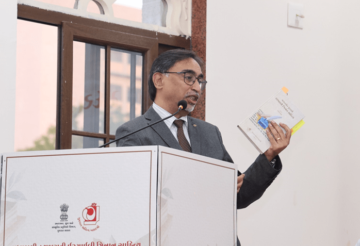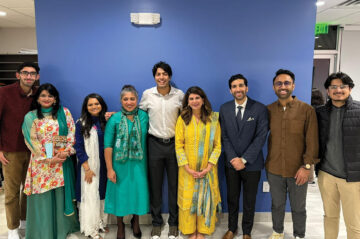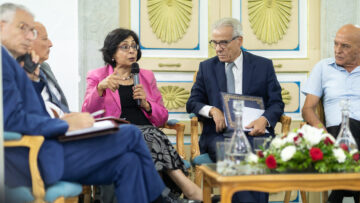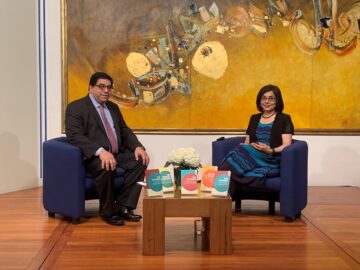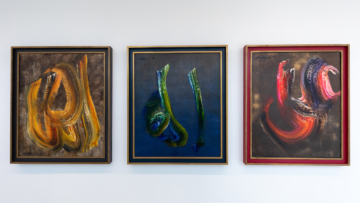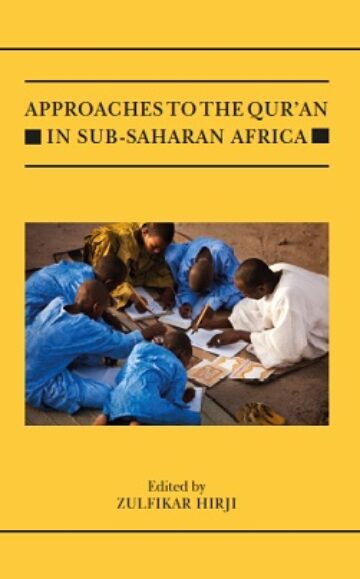Canada’s Simon Fraser University (SFU) and the Aga KhanA title granted by the Shah of Persia to the then Ismaili Imam in 1818 and inherited by each of his successors to the Imamate. University’s Institute for the Study of Muslim Civilisations co-sponsored the launch of the IIS publication Muslim Modernities: Expressions of the Civil Imagination, in Vancouver on July 24. SFU Professor Derryl MacLean and ISMC director Dr. Abdou Filali-Ansary discussed the themes explored in the volume with the editor, Dr. Amyn B. Sajoo.
Of particular interest to the scholars and students in attendance was the nature of modernity and its relationship to tradition – as well as the pluralist understanding of Muslim modernity implied in the title of the volume. Dr. Sajoo drew attention to the risks of reducing the discussion of modernity to an East-West polarity, which ignored the manifold ways of being modern within each society and gave credence to the ‘clash of civilisations’ warriors.
In a subsequent launch event at Vancouver’s Ismaili Centre on July 26, the veteran national broadcaster Don Mowatt interviewed Dr. Sajoo on the choices and prospects facing Muslims in the wake of September 11, 2001. The need to frame such discussions with sensitivity to the diversity of the Muslim world, and to the historical context of relations among societies, was highlighted.
Members of the audience engaged in a lively question and answer session with Dr. Sajoo and Don Mowatt, notably on the capacity of Muslim societies to harness the best of their heritages while also embracing the challenges of civic and technological modernity.
Both launch events underscored a key aspect of the essays in Muslim Modernities: that expressions of civic life in Muslim settings are not about alternatives to modernity but rather about distinctive ways of being modern. This volume builds on earlier IIS publications on Civil Society in the Muslim World (ed. Amyn B. Sajoo) and Modern Muslim Intellectuals and the Qur’an(also Koran. Arabic term meaning, ‘recitation’ or ‘scripture’): Muslims believe that the Holy Qur’an contains divine revelations to the Prophet Muhammed received in Mecca and Medina over a period of… More (ed. Suha Taji-Farouki), in advancing the mandate of the Institute to give ‘particular attention to issues of modernity that arise as Muslims seek to relate their heritage to contemporary circumstances’.

